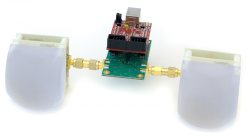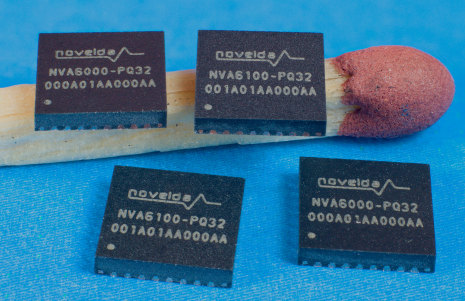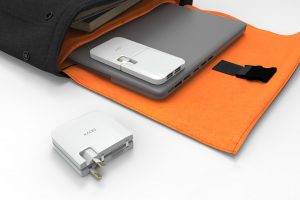 A startup in Norway has launched a single chip CMOS radar system that can be used for a wide range of sensors in portable devices.
A startup in Norway has launched a single chip CMOS radar system that can be used for a wide range of sensors in portable devices.
Novelda was spun out of the University of Oslo in 2004 to develop and manufacture impulse radar technology as a new electromagnetic high-precision sensor for human vital sign monitoring, personal security, environmental monitoring, industrial automation and other novel sensor applications.
The NVA6000 Nanoscale Impulse Radar is a complete CMOS radar transceiver that requires no clock, yielding higher speed and lower power that is compliant with both ETSI and FCC standards within the 6.0GHz – 8.5GHz UltraWideBand frequencies. It emits radar pulses and then measures the backscattered (reflected) energy from objects in the surroundings. The architecture of the receiver is based on a clever averaging scheme, enabling it to recover signals buried beneath the noise floor. By parallelising the sampling structure, the receiver is able to capture up to 512 points at a time with sampling at over 30 GS/s.
This opens up for new application areas due to its speed and resolution and its ability to “see through” obstacles such as 3D RF imaging, invisible ‘fences’ for security and opening up the possibility of embedded barcodes. With no lenses to be cleaned, the cost of ownership can be dramatically reduced in comparison to other more traditional sensing technologies, and as the single chip transceivers come in a 5x5mm package, they are very suitable for integration into small and mobile devices, says the company.

Nick Flaherty has been covering technology and startups since 1990 and is based in Bristol, where he co-founded the SiliconSouthWest network. During that time he has worked for most of the electronics magazines and newspapers in the UK and several in Europe and the US, covering all areas of the industry. He blogs at The Embedded blogwww.embeddedblog.blogspot.com and Portable Multimediawww.portablemultimedia.blogspot.com and at www.flaherty.co.uk.
 Electronics Weekly Electronics Design & Components Tech News
Electronics Weekly Electronics Design & Components Tech News


URL for Novelda should be http://www.novelda.no/
-pete